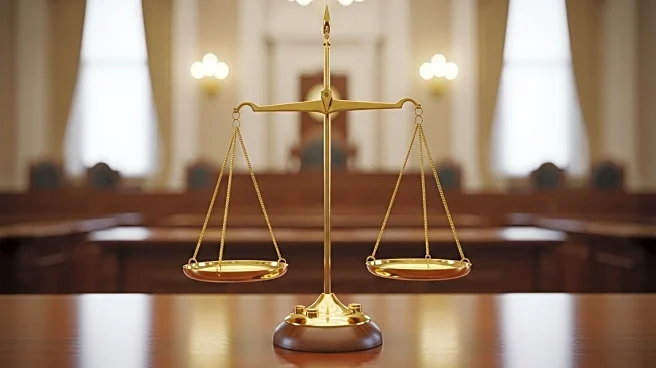What's Happening?
The Supreme Court has announced it will review the legality of tariffs imposed by President Trump under the International Emergency Economic Powers Act (IEEPA). These tariffs, which target countries such as Canada, China, and Mexico, were initially challenged in lower courts, which ruled them unlawful. The tariffs were part of Trump's broader economic strategy, aimed at addressing national security threats and curbing fentanyl trafficking. The Supreme Court's decision to hear the case follows appeals from the White House, seeking clarification on whether IEEPA authorizes such tariffs and if it improperly delegates legislative authority to the President.
Why It's Important?
The Supreme Court's decision could have significant implications for U.S. trade policy and presidential powers. If the court upholds the tariffs, it could set a precedent for future administrations to use emergency powers for economic measures. Conversely, a ruling against the tariffs could limit presidential authority and impact ongoing trade relations. The outcome may affect industries reliant on imports, potentially altering market dynamics and pricing. Additionally, the decision could influence the balance of power between the executive and legislative branches regarding trade policy.
What's Next?
The Supreme Court is scheduled to hear arguments in November, with potential outcomes ranging from upholding the tariffs to declaring them unlawful. Depending on the ruling, President Trump may seek alternative legal avenues to impose tariffs, affecting various industries and international relations. The decision could also prompt legislative action to clarify or amend the scope of IEEPA, impacting future trade policies and presidential powers.









